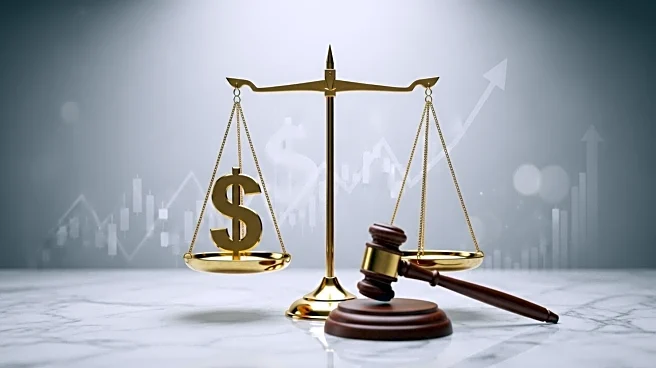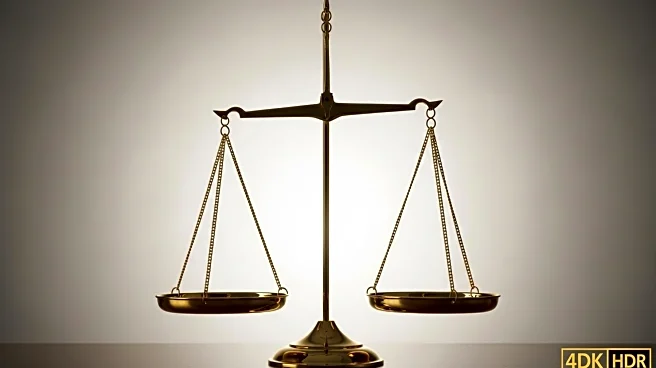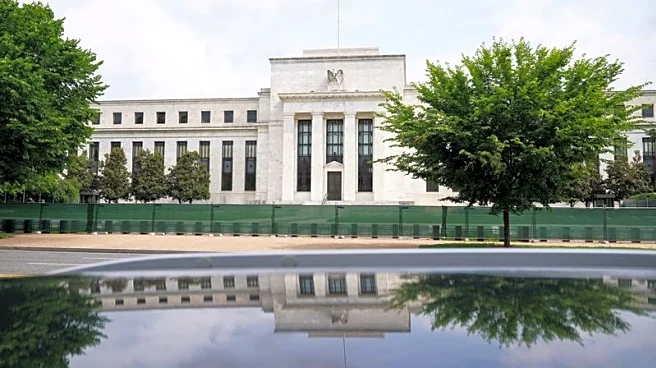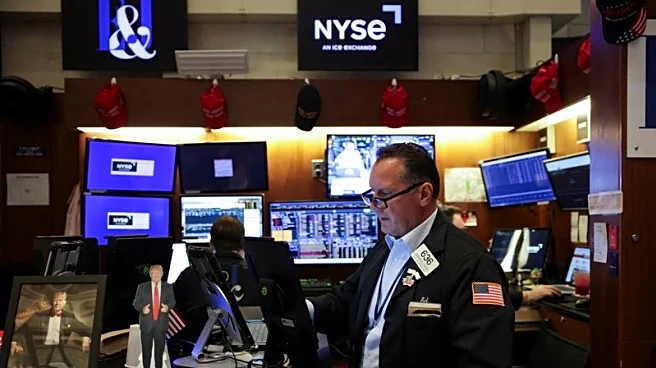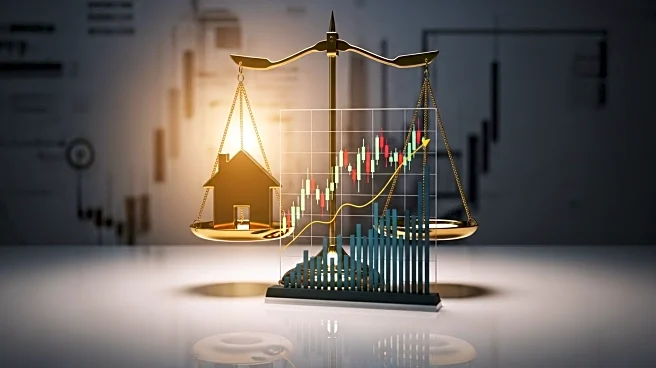What's Happening?
Treasury Secretary Scott Bessent has publicly criticized the Federal Reserve for maintaining high interest rates, which he claims are stifling economic growth. The federal funds rate has been kept between 4.25% and 4.50% this year, despite pressure from President Trump and other officials to lower it. Bessent argues that the economy inherited by President Trump was worse than reported, and he supports the notion that the Fed's high rates are detrimental to growth. He also highlighted a significant revision by the Bureau of Labor Statistics, which revealed an overstatement of payrolls by 1.5 million jobs during former President Biden's tenure. President Trump has called for a substantial rate cut of 300 basis points, although the Federal Open Market Committee is expected to consider a smaller cut of 25 basis points in its upcoming meeting.
Why It's Important?
The criticism from Treasury Secretary Bessent and President Trump underscores a significant debate over monetary policy and its impact on the U.S. economy. High interest rates can lead to reduced borrowing and spending, potentially slowing economic growth. This situation is particularly relevant as the country seeks to recover from previous economic challenges. A reduction in rates could stimulate investment and consumer spending, providing a boost to the economy. However, the Fed's cautious approach suggests concerns about inflation and financial stability. The outcome of this debate could have wide-reaching implications for businesses, investors, and consumers, affecting everything from loan rates to stock market performance.
What's Next?
The Federal Open Market Committee is scheduled to meet on September 16-17, where a decision on interest rates will be made. While President Trump has advocated for a drastic cut, the Fed is expected to consider a more modest reduction. The decision will be closely watched by economic stakeholders, including businesses and investors, who are eager for signs of economic stimulus. The Fed's actions could also influence future government policy and political discourse, particularly as the administration seeks to bolster economic growth.


